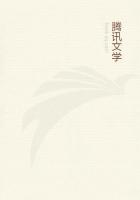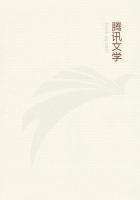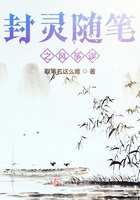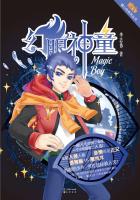Handling this key to his character, Kinglake pursues him into his December treason, contrasts the consummate cleverness of his schemes with the faltering cowardice which shrank, like Macbeth's ambition, from "the illness should attend them," and which, but for the stronger nerve of those behind him, would have caused his collapse, at Paris as at Strasburg and Boulogne, in contact with the shock of action. It is difficult now to realize the commotion caused by this fourteenth chapter of Kinglake's book. The Emperor was at the summit of his power, fresh from Austrian conquest, viewed with alarm by England, whose rulers feared his strength and were distrustful of his friendship. Our Crown, our government, our society, had condoned his usurpation; he had kissed the Queen's cheek, bent her ministers to his will, ridden through her capital a triumphant and applauded guest. And now men read not only a cynical dissection of his character and disclosure of his early foibles, but the hideous details of his deceit and treachery, the phases of cold-blooded massacre and lawless deportation by which he emptied France of all who hesitated to enrol themselves as his accomplices or his tools. Forty years have passed since the terrible indictment was put forth; down to its minutest allegation it has been proved literally true; the arch criminal has fallen from his estate to die in disgrace, disease, exile. When we talk today with cultivated Frenchmen of that half-forgotten epoch, and of the book which bared its horrors, we are met by their response of ardent gratitude to the man who joined to passionate hatred of iniquity surpassing capacity for denouncing it; their avowal that with all its frequent exposure of their military shortcomings and depreciation of their national character, no English chronicle of the century stands higher in their esteem than the history of the war in the Crimea.
The close of the book is grim and tragic in the main, the stir of gallant fights exchanged for the dreary course of siege, intrenchment, mine and countermine. We have the awful winter on the heights, the November hurricane, the foiled bombardments, the cruel blunder of the Karabelnaya assault, the bitter natural discontent at home, the weak subservience of our government to misdirected clamour, the touching help-fraught advent of the Lady Nurses: then, just as better prospects dawn, the Chief's collapse and death. From the morrow of Inkerman to the end, through no fault of his, the historian's chariot wheels drag. More and more one sees how from the nature of the task, except for the flush of contemporary interest then, except by military students now, it is not a work to be popularly read; the exhausted interest of its subject swamps the genius of its narrator. Scattered through its more serious matter are gems with the old "Eothen" sparkle, of periphrasis, aphorism, felicitous phrase and pregnant epithet.
Such is the fine analogy between the worship of holy shrines and the lover's homage to the spot which his mistress's feet have trod;such France's tolerance of the Elysee brethren compared to the Arab laying his verminous burnous upon an ant-hill; the apt quotation from the Psalms to illustrate the on-coming of the Guards; the demeanour of horses in action; the course of a flying cannon-ball;the two ponderous troopers at the Horse Guards; Tom Tower and his Croats landing stores for our soldiers from the "Erminia." Or again, we have the light clear touches of a single line; "the decisiveness and consistency of despotism" - "the fractional and volatile interests in trading adventure which go by the name of Shares" - "the unlabelled, undocketed state of mind which shall enable a man to encounter the Unknown" - "the qualifying words which correct the imprudences and derange the grammatical structure of a Queen's Speech": but these are islets in the sea of narrative, not, as in "Eothen," woof-threads which cross the warp.
To compare an idyll with an epic, it may be said, is like comparing a cameo with a Grecian temple: be it so; but the temple falls in ruins, the cameo is preserved in cabinets; and it is possible that a century hence the Crimean history will be forgotten, while "Eothen" is read and enjoyed. The best judges at the time pronounced that as a lasting monument of literary force the work was over refined: "Kinglake," said Sir George Cornewall Lewis, "tries to write better than he can write"; quoting, perhaps unconsciously, the epigram of a French art critic a hundred years before - IL CHERCHE TOUJOURS A FAIRE MIEUX QU'IL NE FAIT. He lavished on it far more pains than on "Eothen": the proof sheets were a black sea of erasures, intercalations, blots; the original chaotic manuscript pages had to be disentangled by a calligraphic Taunton bookseller before they could be sent to press. This fastidiousness in part gained its purpose; won temporary success;gave to his style the glitter, rapidity, point, effectiveness, of a pungent editorial; went home, stormed, convinced, vindicated, damaged, triumphed: but it missed by excessive polish the reposeful, unlaboured, classic grace essential to the highest art.
Over-scrupulous manipulation of words is liable to the "defect of its qualities"; as with unskilful goldsmiths of whom old Latin writers tell us, the file goes too deep, trimming away more of the first fine minting than we can afford to lose. Ruskin has explained to us how the decadence of Gothic architecture commenced through care bestowed on window tracery for itself instead of as an avenue or vehicle for the admission of light. Read "words" for tracery, "thought" for light, and we see how inspiration avenges itself so soon as diction is made paramount; artifice, which demands and misses watchful self-concealment, passes into mannerism; we have lost the incalculable charm of spontaneity.
Comparison of "Eothen" with the "Crimea" will I think exemplify this truth. The first, to use Matthew Arnold's imagery, is Attic, the last has declined to the Corinthian; it remains a great, an amazingly great production; great in its pictorial force, its omnipresent survey, verbal eloquence, firm grasp, marshalled delineation of multitudinous and entangled matter; but it is not unique amongst martial records as "Eothen" is unique amongst books of travel: it is through "Eothen" that its author has soared into a classic, and bids fair to hold his place. And, apart from the merit of style, great campaigns lose interest in a third, if not in a second generation; their historical consequence effaced through lapse of years; their policy seen to have been nugatory or mischievous; their chronicles, swallowed greedily at the birth like Saturn's progeny, returning to vex their parent; relegated finally to an honourable exile in the library upper shelves, where they hold a place eyed curiously, not invaded:
"devoured As fast as they are made, forgot as soon As done. . . . To have done, is to hang Quite out of fashion, like a rusty mail, In monumental mockery."

